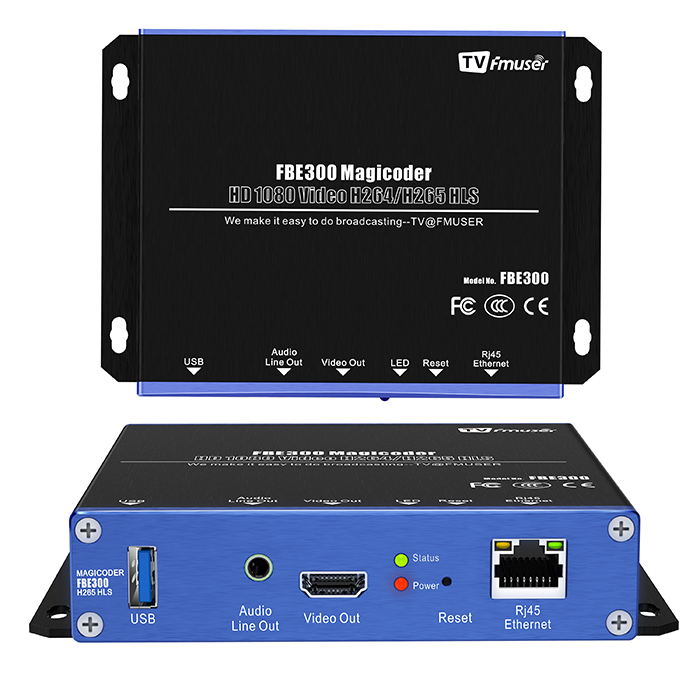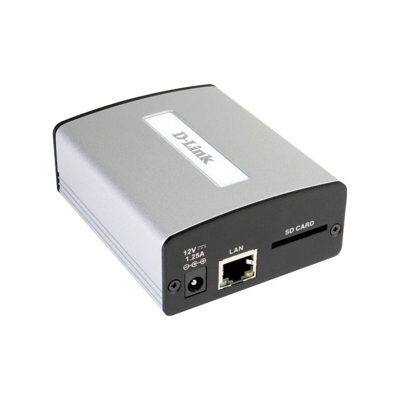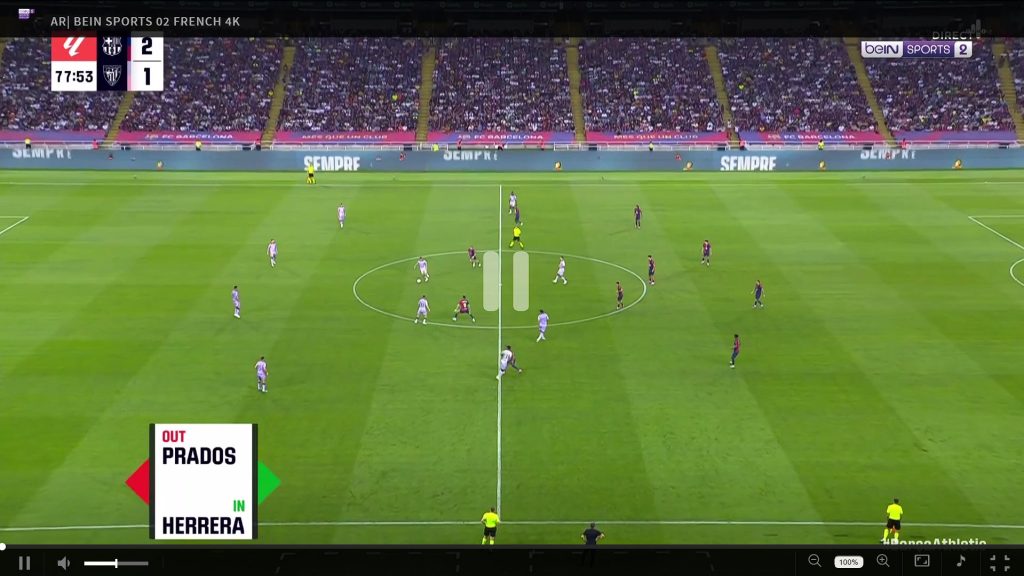IPTV Encoders Explained: The Key to Seamless Streaming

As the demand for streaming services skyrockets, it’s becoming more important than ever to understand the technology that powers IPTV (Internet Protocol Television). Whether you’re looking to start your own IPTV service or enhance an existing platform, one of the most critical components is the IPTV encoder. Without it, your streams wouldn’t be able to reach viewers in the smooth, high-quality format they expect.
At IPTV StreamTV4K , we aim to help potential customers like you make informed decisions about the technology that can make or break your IPTV service. In this article, we’ll break down everything you need to know about IPTV encoders and why they are essential for seamless streaming.
Wanna try out our IPTV Service for FREE ? Click Here & get an IPTV FREE TRIAL NOW !
What is an IPTV Encoder?
Let’s start with the basics. An IPTV encoder is a device or software that converts raw video and audio signals into a format that can be streamed over the internet. Essentially, it takes your video content—whether it’s a movie, TV show, or live event—and compresses it into data that can be sent to viewers efficiently, without sacrificing too much quality.
This process is critical for IPTV services because, unlike traditional TV broadcasting, where signals are transmitted through satellite or cable, IPTV delivers content over the internet. Without an encoder, the data from your video would be far too large and inefficient for streaming over typical internet connections.
IPTV Encoders vs. Traditional Video Encoders

A question we often hear at IPTV StreamTV4K is: “How are IPTV encoders different from regular video encoders?” The main difference is that IPTV encoders are optimized for internet streaming. They often support advanced compression formats like HEVC (High-Efficiency Video Coding) and streaming protocols that are essential for delivering video to multiple devices, over varying internet speeds, with minimal latency. In short, while both encode video, IPTV encoders are purpose-built for the unique challenges of internet-based television.
How IPTV Encoders Work
The technology behind IPTV encoding might sound complex, but it boils down to a straightforward process:
- Input: The encoder receives raw video and audio from a source. This could be a camera for live streaming or a pre-recorded video file.
- Compression: Using algorithms like H.264 or HEVC (H.265), the encoder compresses the video. These codecs significantly reduce the file size while preserving visual quality.
- Output: The compressed data is packaged into formats that can be streamed over the internet, such as HLS (HTTP Live Streaming) or MPEG-DASH (Dynamic Adaptive Streaming over HTTP).
This process allows viewers to watch high-quality streams without using excessive bandwidth. One of our clients at IPTV StreamTV4K once told me how before switching to a better HD IPTV encoder, their streams were always lagging. It turned out their older encoder wasn’t using efficient compression. After upgrading to one of our recommended encoders, they saw a huge improvement, and their audience started growing!
Wanna try out our IPTV Service for FREE ? Click Here & get an IPTV FREE TRIAL NOW !
Types of IPTV Encoders
IPTV encoders generally fall into two categories: software-based encoders and hardware-based encoders. Each type has its own set of benefits, and the right choice depends on your needs and the scale of your IPTV service.
Software-based Encoders
Software encoders are exactly what they sound like—programs installed on a computer or server that handle the encoding process. They’re typically more affordable and flexible, allowing for easy updates and configuration. Many smaller IPTV services use software-based encoders because they’re budget-friendly and can be adapted for various streaming setups.
Pros:
- Cost-effective.
- Flexible and customizable.
- Easily upgradable.
Cons:
- Relies on the processing power of your computer or server.
- May not be ideal for handling large-scale, high-traffic streams.
Hardware-based Encoders
Hardware encoders, including the HD 16 channel IPTV encoder, are dedicated devices built specifically for encoding video streams. These tend to be more robust and reliable than software solutions, especially when handling larger, high-definition streams or 24/7 live channels.
Pros:
- Extremely stable and reliable.
- Better suited for large-scale operations.
- Doesn’t tax your computer or server.
Cons:
- More expensive upfront.
- Less flexibility than software-based encoders.
In my own experience, I’ve found hardware encoders to be the best choice for live sports and events. One of our IPTV StreamTV4K customers who runs a sports network made the switch to a HDMI IPTV encoder after facing constant issues during live streams. Once they upgraded, they saw a huge reduction in buffering and lag.
Wanna try out our IPTV Service for FREE ? Click Here & get an IPTV FREE TRIAL NOW !
Key Features to Look for in an IPTV Encoder
When choosing an IPTV encoder, there are a few critical features you need to keep in mind. These features will directly impact the quality of your streams, viewer satisfaction, and even your data costs. Here’s what to look for:
Video Quality and Compression

The balance between video quality and data usage is key. While you want to deliver the best possible experience, you also need to compress video enough to minimize bandwidth usage. Look for encoders that use efficient codecs like HEVC, which can offer similar quality to H.264 but with up to 50% less bandwidth.
Supported Protocols
Your encoder needs to support the streaming protocols you plan to use. Common protocols include:
- HLS (HTTP Live Streaming) – Often used for iOS devices.
- MPEG-DASH – A widely-used protocol for adaptive streaming.
- RTSP/RTMP – Ideal for live streaming.
Make sure your encoder supports the protocols your audience is using. For instance, if you’re catering to viewers on mobile devices, HLS support is crucial.
Bitrate Control
There are two main types of bitrate encoding: Constant Bitrate (CBR) and Variable Bitrate (VBR). CBR encodes video at a fixed rate, which is easier to manage but can waste bandwidth if parts of the video don’t require the same amount of data. VBR adjusts the bitrate depending on the complexity of the scene, optimizing both quality and bandwidth.
Encoding Speed and Latency
If you’re live streaming, the last thing you want is for your stream to be delayed by several seconds or minutes. Low-latency encoding ensures that your streams reach viewers with minimal delay. This is especially important for sports and live events where every second counts.
Wanna try out our IPTV Service for FREE ? Click Here & get an IPTV FREE TRIAL NOW !
Why High-Quality Encoding Matters for IPTV Providers
It’s no secret that viewers are quick to abandon a stream if the quality isn’t up to their standards. High-quality encoding is critical for delivering a smooth and enjoyable experience for your audience.
Reduced Buffering and Faster Load Times
A good IPTV encoder can reduce buffering by optimizing the data being sent to the viewer’s device. When your encoder compresses video efficiently, it requires less bandwidth, meaning the viewer is less likely to experience interruptions due to slow connections. One of the most common complaints we hear from IPTV users is buffering, and a quality encoder is one of the best ways to tackle this issue head-on.
Lower Data Costs
By using advanced compression technologies, a high-quality HEVC IPTV encoder can reduce the amount of data required to stream content. This not only improves the viewer experience but can also lower your operational costs, especially if you’re handling large volumes of video streams.
Increased Viewer Satisfaction
At the end of the day, viewer satisfaction is the most important metric for any IPTV service. High-efficiency encoding can provide better picture quality, faster load times, and less buffering—keeping your audience happy and engaged. Several of our customers at IPTV StreamTV4K have reported increased user retention after upgrading their encoders.
IPTV Encoders for Live Streaming
When it comes to live IPTV broadcasts, there are a few additional factors to consider. Real-time encoding is a lot more demanding than encoding pre-recorded video. Not only do you need to ensure that your encoder can handle the input quickly, but you also need to manage bandwidth effectively to avoid hiccups during the stream.
Real-Time Encoding for Live Events
Live events like sports games, concerts, or news broadcasts require encoders with minimal latency. Hardware encoders are often the go-to choice for live streaming because they offer the stability and processing power needed to handle real-time input without delay. I’ve seen IPTV services that try to use software encoders for live events, and they usually end up facing issues with lag and dropped frames. At IPTV StreamTV4K , we recommend hardware encoders, especially the HD 16 channel IPTV encoder, for anyone planning to stream live content on a regular basis.
Wanna try out our IPTV Service for FREE ? Click Here & get an IPTV FREE TRIAL NOW !
Optimizing Bandwidth for 24/7 Channels
If you’re running a 24/7 IPTV channel, you’ll also want to ensure your encoder can handle the constant demand. This is where bitrate control becomes crucial. Using Variable Bitrate (VBR) encoding can optimize the use of your bandwidth, allowing you to deliver high-quality video without overloading your servers or exceeding bandwidth limits.
Choosing the Right IPTV Encoder for Your Needs
With so many options on the market, choosing the right IPTV encoder can feel overwhelming. The key is to match your choice with your specific needs. Here’s what to consider:
Audience Size
If you’re just starting out with a small audience, a software-based encoder might be all you need. However, if you’re expecting significant growth or plan to broadcast to a large audience, it’s worth investing in a hardware solution like the HDMI IPTV encoder.
Type of Content
Different types of content have different requirements. For example, live sports or events require low latency and high-quality video, while on-demand content can afford a bit more flexibility.
Budget
Finally, consider your budget. While hardware encoders can be a larger upfront investment, they often pay off in the long run by delivering higher-quality streams with less downtime.
Conclusion
Investing in a quality HD IPTV encoder is crucial for anyone serious about delivering high-quality streaming services. With the right HEVC IPTV encoder, you can optimize your streams for better performance, reduce costs, and most importantly, keep your viewers happy.
If you’re ready to take the next step in enhancing your IPTV service, check out the wide selection of encoders available at IPTV StreamTV4K . Our experts are here to help you find the perfect solution tailored to your specific needs. Don’t hesitate to reach out for personalized recommendations!
Wanna try out our IPTV Service for FREE ? Click Here & get an IPTV FREE TRIAL NOW !

